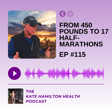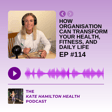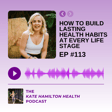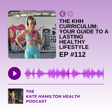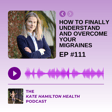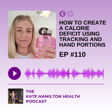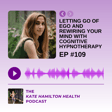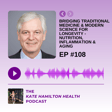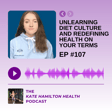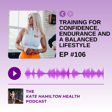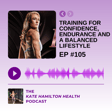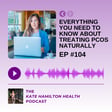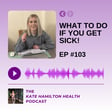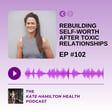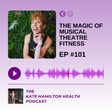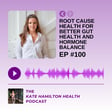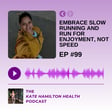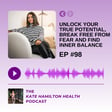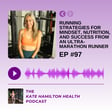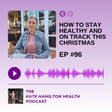
#95: Karen Murphy: Empowering women over 40 through wellness, resilience and finding purpose
In this episode of the Kate Hamilton Health Podcast, I sit down with Karen Murphy, an online coach helping women over 40 redefine their health and fitness journeys.
Karen shares how personal tragedy inspired her shift from a high-pressure corporate career to building a purpose-driven life centered around wellness. We dive deep into the challenges - and rewards - of prioritising mental and metabolic health, building sustainable habits, and embracing resistance training as we age.
Karen’s story is filled with resilience and practical wisdom. Whether you’re navigating grief, reevaluating your priorities, or just starting your health journey, this episode is packed with actionable advice and heartfelt encouragement.
Listener Note: This episode includes a discussion of infant loss, which some listeners may find sensitive or triggering.
Key Questions Discussed in This Episode:
- What inspired Karen to pursue a career in health and fitness after personal loss?
- How can women over 40 balance health, family, and demanding careers?
- Why is resistance training particularly beneficial for women as they age?
- How do sugar and alcohol affect our overall health, and how can we manage their impact?
- What role do sleep and stress management play in achieving wellness goals?
- How can you build consistent, healthy habits without striving for perfection?
- What strategies help women navigate perimenopause and menopause with confidence?
- How do you define your “why” and use it to drive lasting change in your life?
Links & Resources:
- Connect with Karen Murphy on Instagram here
If you enjoyed this episode, please subscribe, leave a review, and share it with friends who might benefit. For more health and fitness tips, follow me on Instagram and TikTok @katehamiltonhealth.
Music b LiQWYD Free download: hypeddit.com/link/xxtopb [http://hypeddit.com/link/xxtopb] Promoted by FreeMusicPromo [https://www.youtube.com/channel/UCbycji-eySnM3WD8mbxPUSQ] / @freemusicpromo
